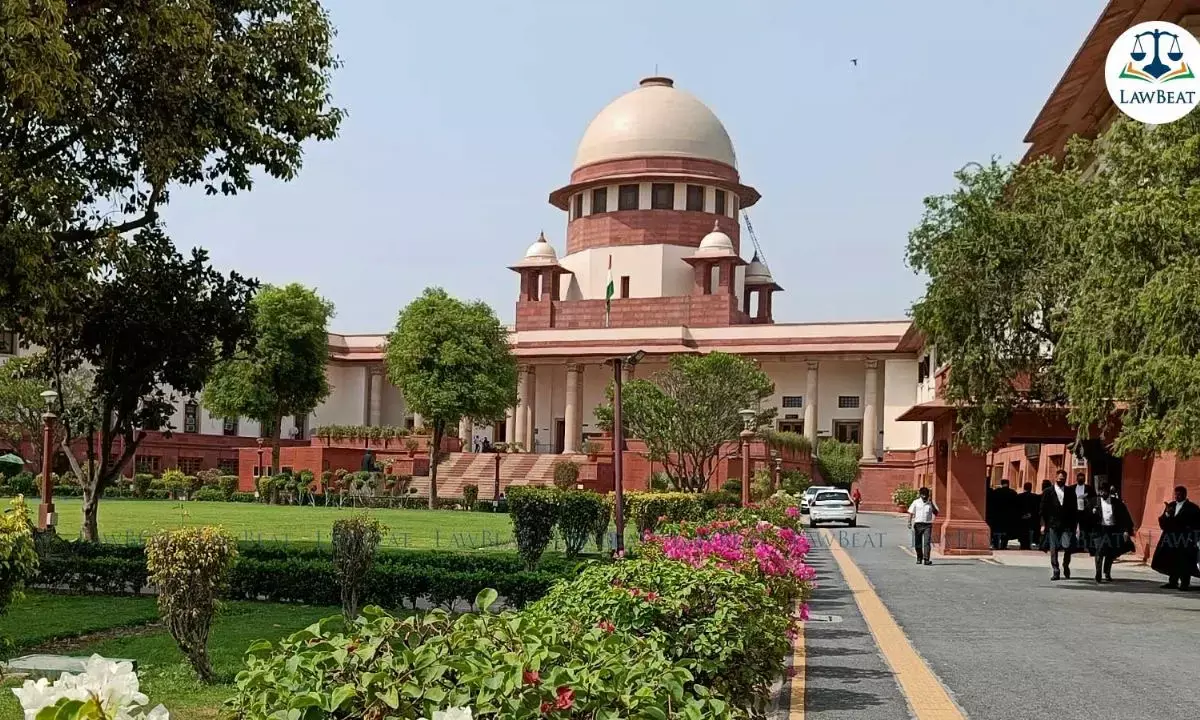Delivery of arbitral award to appropriate person not mere formality: SC

Supreme Court clarifies limits on non-signatory invoking arbitration under Section 11
The Supreme Court has clarified an important aspect of arbitration law by ruling that delivery of an arbitral award under Section 31(5) of the Arbitration and Conciliation Act, 1996 is not a matter of mere formality but one of substance. A bench of Justices J B Pardiwala and K V Vishwanathan on August 28, 2025 held that effective service of an arbitral award must be to a person who qualifies as a party under the Act and who is competent to understand, appreciate, and take a decision on whether the award should be challenged.
The case arose from a dispute between M/s Motilal Agarwala and the State of West Bengal, in which an arbitral award had been passed in favour of the appellant on November 12, 2013. The arbitrator delivered a signed copy of the award to an Assistant Engineer of the State, who had attended the proceedings on behalf of the respondent. The central question before the Supreme Court was whether delivery of the award to such an authorised representative amounted to valid service on the State in terms of Section 31(5).
The court emphasised that under Section 2(1)(h) of the Act, a “party” means a person who is a party to the arbitration agreement. In the context of government departments and large organisations, the bench held that effective service of an award requires delivery to an officer who is not only formally connected with the contract but also in a position to take a considered decision on whether the award should be accepted or challenged. The bench specifically observed that an Assistant Engineer could not be treated as the competent authority to decide on challenging an award. That responsibility lies with senior officials such as the Secretary of the concerned Department or the Executive Engineer who has the authority and knowledge to act on behalf of the State.
The judgment drew heavily on the precedent in Union of India v Tecco Trichy Engineers & Contractor (2005), where the Supreme Court had held that delivery of an award must be to a person who has sufficient knowledge of the proceedings and who is best placed to understand and appreciate its implications. In that case, the court had recognised that large organisations often have multiple levels of officers and unless the award is delivered to an officer who can exercise judgment and initiate further legal recourse, the requirements of Section 31(5) would not be satisfied.
The bench explained why this principle has far-reaching consequences. Delivery of an arbitral award by the tribunal and its receipt by the party sets in motion limitation periods under the Act. An application for correction or interpretation under Section 33(1) must be made within 30 days, while an application for an additional award under Section 33(4) and an application for setting aside an award under Section 34(3) are also subject to strict limitation. The court noted that once a copy of the award is delivered to a party, certain rights crystallise immediately, and failure to act within the limitation period will result in the extinguishment of those rights. Therefore, delivery of the award is not procedural formality but a substantive stage of arbitral proceedings.
In this case, the arbitral award was handed to the Sub-Divisional Officer/Assistant Engineer of Teesta Canal Division No 2 at Islampur. The State later sought to challenge the award under Section 34, but the application was dismissed by the District Court as being time-barred on the ground that the limitation period had already expired. Dissatisfied with that outcome, the State appealed to the Calcutta High Court, which reversed the District Court’s view and held that delivery to the Assistant Engineer did not amount to valid service under Section 31(5). The High Court directed that the State’s Section 34 application should be heard on its merits.
When the matter reached the Supreme Court, the appellant M/s Motilal Agarwala argued that delivery to the Assistant Engineer was sufficient. The bench rejected that argument, holding that the Assistant Engineer was neither a party to the arbitration agreement nor a competent authority to take a decision on behalf of the State. Applying the reasoning of Tecco Trichy Engineers, the court found that the award had not been validly served on the State, and consequently the limitation period had not commenced.
The Supreme Court therefore upheld the High Court’s judgment of March 1, 2016 and dismissed the appeal by M/s Motilal Agarwala. It requested the District Court to take up the State’s Section 34 application and decide it on its own merits within six months, noting that the litigation has already been pending for more than twelve years. The bench underlined that further delay would defeat the purpose of expeditious resolution envisaged under the Arbitration and Conciliation Act.
The ruling reiterates the importance of proper service in arbitration proceedings and sends a clear message to arbitral tribunals and parties alike that the delivery of awards cannot be treated casually. For government departments and large corporate entities, the decision clarifies that service on lower-level officers will not suffice. Unless an award is delivered to an officer who can exercise authority and judgment, the requirements of Section 31(5) are not met, and limitation periods will not begin to run.
Case Title: M/s Motilal Agarwala v State of West Bengal & Anr | Judgment Date: August 28, 2025 | Bench: Justices J B Pardiwala and K V Vishwanathan
